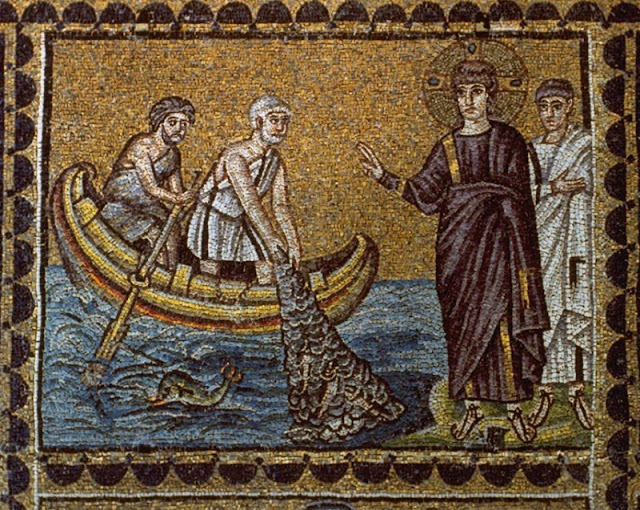Second Sunday of Pentecost
All Honest Work Is Pleasing To God
By Archpriest Grigory Dyachenko
Many Christians, to whom God has assigned hard, by human standards, work, grumble about their occupation, are often dissatisfied with their position and often envy noble and rich people. But... remember the words of the Apostle: "As the Lord has called each one, so let him walk" (1 Cor. 7:17). Any useful work, even if not honorable, is honorable and pleasing to God. Our Savior Jesus Christ Himself, living in the house of Joseph the carpenter, undoubtedly engaged in this craft, because he was in complete obedience to his parents (cf. Luke 2:51). The Apostles also fed themselves from the labor of their hands; thus, the Apostle Paul himself made tents, and other Apostles, for example Peter and John, caught fish. The Most Holy Theotokos was engaged in handicrafts. And the holy saints of God worked hard: some cultivated the land, others wove baskets, others chopped wood...
Let us take, for example, Saint Alexander, Bishop of Comana (August 12). Alexander came from noble parents and received an excellent education; he knew not only Christian wisdom, but also pagan wisdom, and was considered a philosopher. He could have held a prominent position and enjoyed great honor in society, but his holy soul sought higher honors: he chose the highest Christian feat - self-willed poverty. In deep Christian humility, he decided to live the simplest life, almost shameful in people's opinion - he became a charcoal burner; he burned coals in the forest and carried them to the city to sell, which is how he made a living. By his occupation, he appeared black, dirty, in patched clothes. Little by little, they forgot about Alexander as a philosopher and knew him only as a charcoal burner. Now, from time to time, even small children made fun of him, but Alexander did not pay attention to this. He thought he would end his life in this situation, but God's Providence judged him differently. In Comana, in Asia Minor, a bishop died. Presbyters and local bishops gathered to elect a new hierarch; Bishop Gregory the Wonderworker of Neocaesarea, renowned for his spiritual experience, was also invited. When those present began to point to one or another as a worthy successor to the deceased, referring to the nobility of his family, wealth, gift of eloquence, or the venerable years of the one being elected, Saint Gregory the Wonderworker, in turn, noted that when choosing a bishop, one must pay attention primarily to internal qualities, to the kindness of his heart and to God's direction, and he proved his idea with a well-known event from Old Testament history: the election of Jesse's youngest son, David, who had been a shepherd for his father, as king. Not everyone liked the Saint's idea. Many began to grumble and mockingly said: "If we are not to pay attention to appearance when choosing a bishop, then why not choose the coal miner Alexander as bishop?" At that time, Alexander was standing right there in the crowd. "And who is this Alexander?" asked Gregory of Neocaesarea , thinking at the same time: is this not God's indication of a worthy chosen one.




































